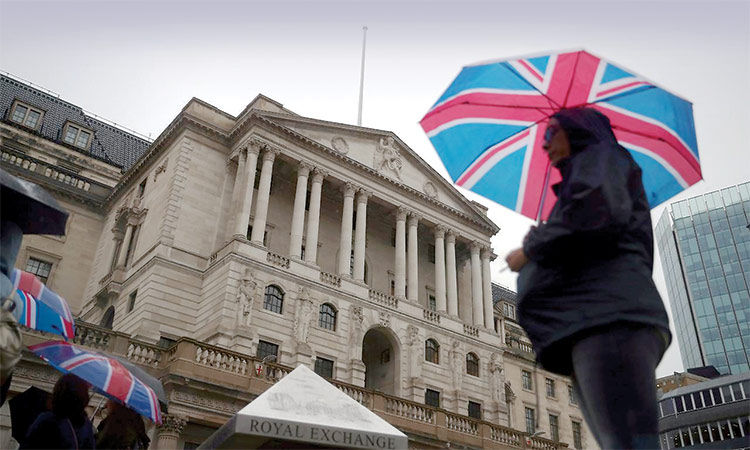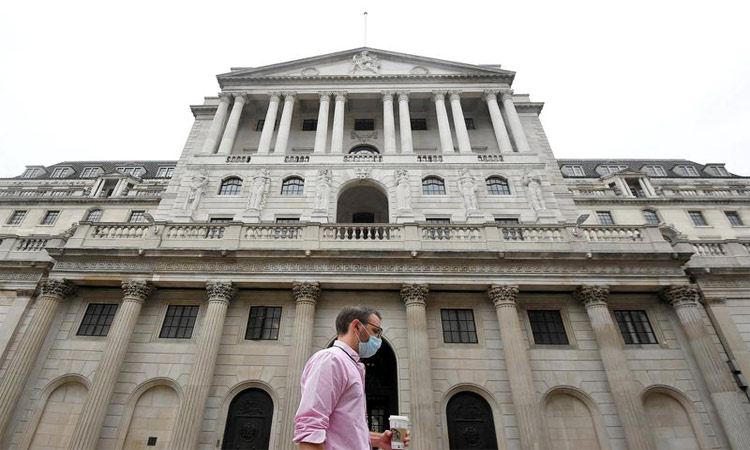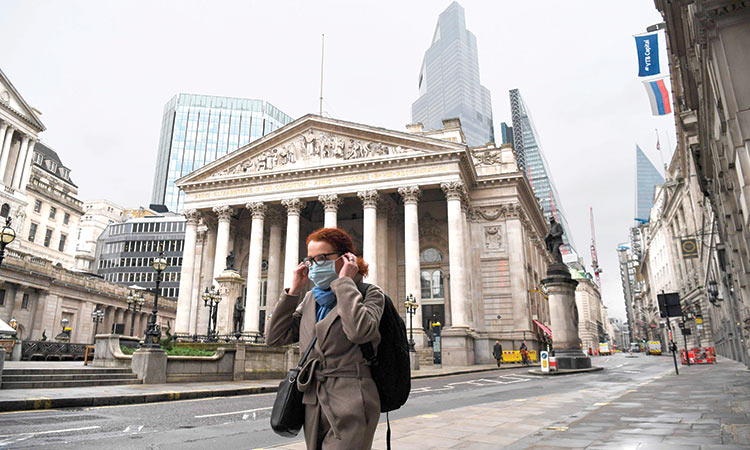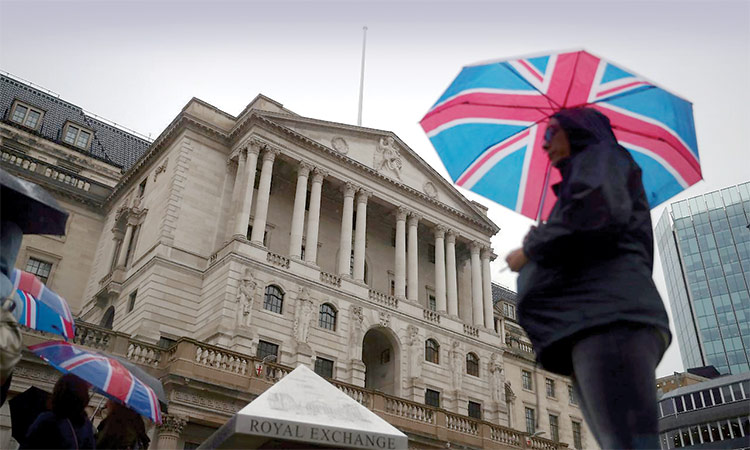Bank of England’s coronavirus ‘recovery’ plan is pushing UK deeper into a climate emergency

A pedestrian shelters under a Union Flag umbrella in front of the Bank of England, in London. Reuters
Hidden behind the giant fortress walls of the Bank of England on Threadneedle Street lies one of the most powerful unused levers of power that could enable Britain to become a global leader in the urgent race to create a zero-carbon economy. Yet the shocking truth is that, despite the laudable rhetoric of its previous governor Mark Carney lecturing the banks that they needed to take action on the climate—crisis, it has been acting as lender of last resort to the UK high street banks — who are among the worst global funders for the climatically destructive fossil fuel corporations.
On top of this, in its response to the COVID-19 crisis, the Bank has been pumping billions more to fund a dirty brown bailout for fossil fuelled corporations but, when I approached it for comment, still remains silent on how its response is failing to address the even more urgent climate emergency.
The amounts of money pouring out from the Bank of England and Treasury are eye-watering. The Bank has already lent £19bn to 55 large UK corporations, with another estimated £39bn more in agreed potential loans offered. The corporate beneficiaries will finally be named on Thursday, following a public outcry on the secrecy surrounding the scheme.
Parallel to this, the Bank has unleashed £200bn worth of quantitative easing on the markets and has announced it is looking at billions more. The Treasury is looking at government borrowing soaring to £300bn for 2020.
The COVID-19 crisis has been a scream from nature to take action on the planetary climate and ecological emergencies, amplifying the terrifying weather records falling like dominoes in the UK and across the world. We have just had the driest spring since records began in the UK and globally the hottest April ever, the hottest last five years ever (2014-19) and the hottest decade (2009-19). UK farmers are already reporting wilting crops in the fields. Covid-19 has starkly demonstrated that there is literally no economy or human health without a healthy ecology and stable climate. It is crucial therefore that the world’s central banks integrate protection of the natural world and climate as integral to their role in protecting the global economy.
Though the Bank of England has for some time accepted the threat that the climate crisis presents to the economy, its policy actions have been limp in the extreme. It focuses merely on voluntarily encouraging corporations to report on their financial exposure to climate impacts and encouraging others to provide green finance.
Nowhere does it address its own responsibility of being a lender to the banks funding the massive global expansion of the fossil fuel industry. Again, it refused to comment on this when I asked for more detail when writing this column. Nowhere does it acknowledge its own potential role of being a funder of the necessary economic green transition.
It is beyond time for the Bank to stop fiddling while the natural world — upon which the economy depends — burns and even more important it is time for them to stop funding the arsonists.
The COVID-19 crisis threatens 1 per cent of humanity and we are rightly taking unprecedented action to protect our elderly and vulnerable. But the climate and ecological emergencies threatens the future of all humanity and what is left of nature. The climate and ecological effort required needs to be orders of magnitude greater than what we are doing to protect humanity from the spread of the novel coronavirus.
It it essential that the Bank of England’s COVID-19 economic recovery plan, puts the protection of future generations at its core, even at this late stage. It is unconscionable that the government should be borrowing billions of pounds from future generations to fund their own future destruction.
It is time for the grand old lady of Threadneedle Street to stand up for future generations right to a stable climate and a restored natural world, upon which their economies are totally dependent. Yes she can!







